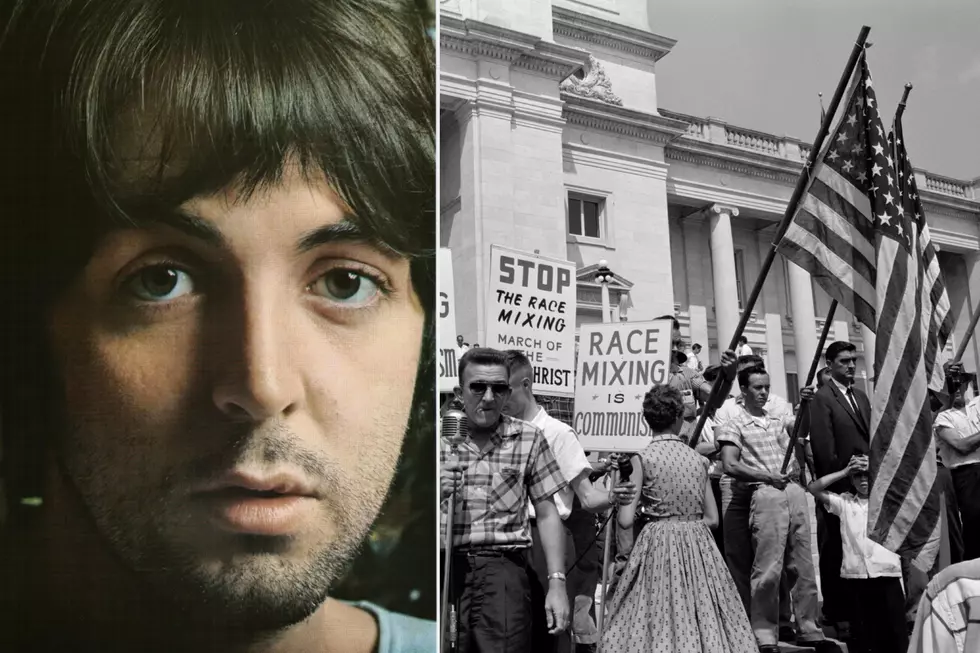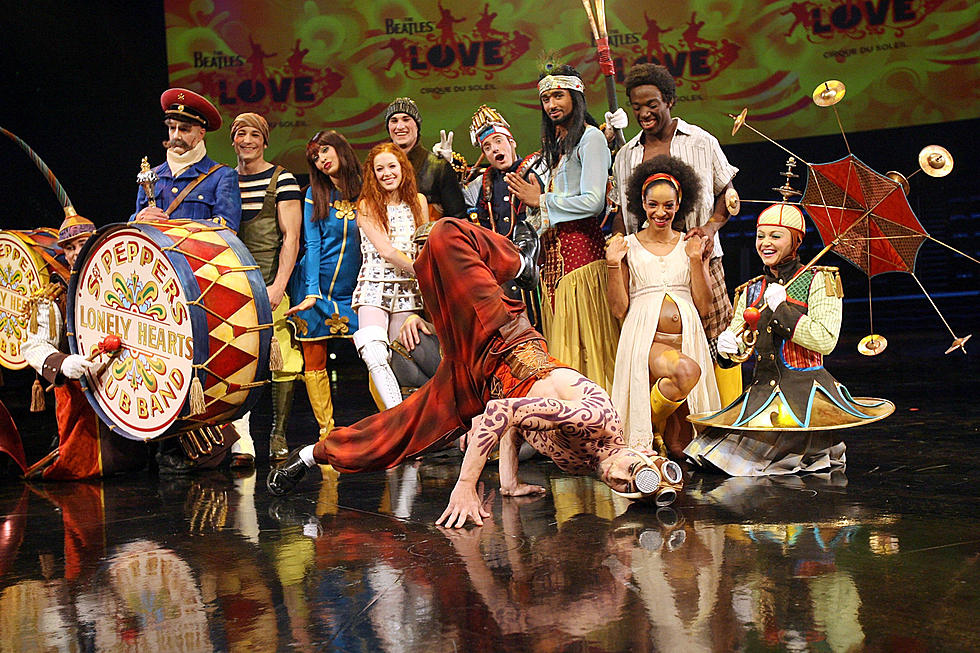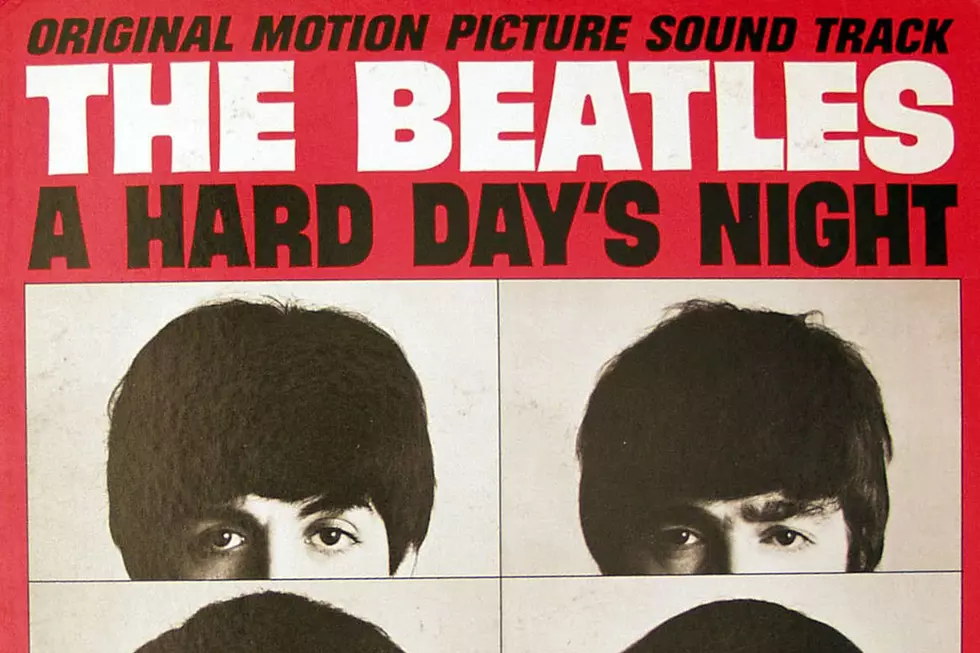
How the Beatles’ ‘Blackbird’ Took Flight From Racism
In April 2016, Paul McCartney welcomed two special guests backstage at his show in Little Rock, Ark. They were more than just Beatles fans – they were the inspiration for one of the band’s most distinctive songs, “Blackbird,” and they inspired the song by simply trying to go to school in the '50s.
It was the era of segregation and the beginning of the civil rights movement. Following the Second World War, in which black people had been called up to fight for their country’s future with as much dedication and bravery as white people, there was a rising desire for change. It didn’t come easy; one of the most infamous moments came with the Little Rock Crisis of 1957, when nine black students enrolled in a previously whites-only school. The resulting images still sting today – white adults shouting threats and throwing objects at young black girls, including Elizabeth Eckford and Thelma Mothershed Wair, who are accompanied by government bodyguards to protect them from the disgrace.
The news, along with reports of many other shameful incidents over the years to follow, traveled the world to Liverpool, where McCartney had yet to co-found the Fab Four. While official segregation never existed in the U.K., social discrimination existed loud and clear. The slogan “No Blacks, No Dogs, No Irish” is said to have been used by landlords who refused to provide accommodation to certain people, though there’s doubt over whether the phrase was ever really in circulation. However, British class distinction remains a visible form of institutionalized segregation in the world today, and the working-class McCartney would have seen it first-hand.
Not that it was by any means the same thing as the scenes from America. Those scenes were notable enough to have him thinking about writing a song. It took more than a decade for the idea to crystallize, though the acoustic guitar piece was something he and George Harrison had been playing around with since their earliest times together. “Blackbird” appeared on the Beatles’ White Album in 1968 in a remarkably simplistic production – his voice, guitar and a basic timekeeping sound for accompaniment.
Listen to the Beatles' ‘Blackbird’
“I was sitting with my acoustic guitar, and I’d heard about the civil rights troubles … in Alabama [where Rosa Parks refused to move to the back of a bus in 1955], Mississippi [where three civil rights activists were executed in 1964], Little Rock in particular,” McCartney told GQ in 2018. “So that was in my mind, and I just thought, ‘It would be really good if I could write something that, if it ever reached any of the people going through those problems, it might kinda give them a little bit of hope.’ So I wrote ‘Blackbird.’”
While other inspirations have been mentioned over the years – the experience of hearing a blackbird sing while he was in India, a personal message to an aunt – the writer was clear about where the idea came from. “In England, a ‘bird’ is a girl, so I was thinking of a black girl going through this,” he said, explaining that the message was “Now’s your time to arise, you know, set yourself free.”
“One of the nice things about music is that you know a lot of the people listening to you are going to take seriously what you’re saying in the song," McCartney added. "I’m very proud of the fact that the Beatles’ output is always really pretty positive … it’s always ‘Let It Be,’ ‘Hey Jude,’ ‘Blackbird.’ It’s hopefully a good message. Hopefully, people out there will listen to it and think, ‘It’s not just me alone going through this … it’s also something I can fix.’”
You can watch his discussion in the video below, followed by a similar explanation onstage in 2010.
“Blackbird” wasn’t the first time the Beatles were proactive about civil rights. Four years before the song was recorded, the band discovered the existence of segregated audiences as they toured the U.S. They refused to accept the situation, soon adding a clause to their performance contracts that read, “Artists will not be required to perform before a segregated audience.”
In 1966, McCartney reflected, "We weren’t into prejudice. We were always keen on mixed-race audiences. With that being our attitude, shared by all the group, we never wanted to play South Africa or any places where blacks would be separated. It wasn’t out of any goody-goody thing. We just thought, ‘Why should you separate black people from white? That’s stupid, isn’t it?'”
The “Blackbird” story came full circle that night in 2016 when he posed for a photograph with Elizabeth and Thelma: “Incredible to meet two of the Little Rock Nine – pioneers of the civil rights movement and inspiration for 'Blackbird.'”
But in 2020, as the Black Lives Matter campaign reached new heights of visibility, he repeated his account of the segregation ban. “I feel sick and angry that here we are, almost 60 years later, and the world is in shock at the horrific scenes of the senseless murder of George Floyd at the hands of police racism, along with the countless others that came before," McCartney said. "I want justice for George Floyd’s family, I want justice for all those who have died and suffered. Saying nothing is not an option.”
Every Beatles U.S. No. 1 Single Ranked
More From Ultimate Classic Rock









